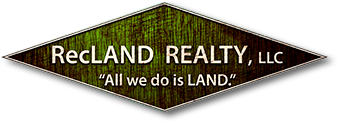By Paul D. Spillers
A good wildlife management plan provides more than just recreation and pleasure. Wildlife can add value to your land investment and tax savings. Astute landowners are learning the Tax Code provides for tax deductions that can put more money in your pocket each April 15th. A real world example illustrates how a landowner can enjoy his land and save tax dollars while his investment increases in value.
MR. ROBERT SPARRE:
In 1961 Mr. Robert Sparre purchased a 191 acre farm in Kent County, Maryland for $24,000.00. The farm included a house in bad repair, a barn, shed, dilapidated outbuildings, and old fences. The land had been previously farmed, except for 40 acres of trees, a 7 acre pond, and some gravel pits. The hilly land was infertile. It had a very low Ph and was deficient in nutrients. The land bordered on a small creek running into Chesapeake Bay and had the potential to attract ducks for hunting.
Mr. Sparre’s purposes for buying the farm were: 1) to have a retirement home when he reached retirement age; 2) provide a supplemental source of income from hunting fees; and 3) profit from the expected long-term appreciation in the value of the land. When the land was purchased he was an engineer living in Delaware, two hours driving time away.
Mr. Sparre’s activities on his land produced consistent losses for almost 20 years. The losses averaged about $15,000.00 per year. His total income from engineering averaged about $40,000.00 per year. Mr. Sparre made extensive efforts to seek the best available advice from various consultants on how to maximize profit from his land and his wildlife activities. He had soil tests performed and added fertilizer and lime and other needed nutrients. Food plots were established in an effort to attract waterfowl and upland game. Waterfowl was raised for release on the property. Revenue from hunting fees was minimal, though it gradually increased over the years. The house was repaired. Hunting revenue increased when Mr. Sparre started providing lodging and meals to the hunters. Despite his best efforts, however, the expenses were always greater than annual income from the farm. Tax losses were deducted and reduced the amount of income taxes he paid. Despite the consistent losses, Mr. Spare continued his efforts to make money on his investment.
The IRS finally reviewed Mr. Sparre’s tax returns and, considering the consistent losses, concluded he was operating his land as a hobby, or personal pleasure, and not for a profit. The IRS disallowed all deductions associated with the land. However, Mr. Sparre disagreed with the IRS and asked the Tax Court to review his case. The Tax Court agreed with Mr. Sparre and rejected the IRS’ position. The Court held that he had the “intent to make a profit” and the losses were all deductible. Sparre vs. Commissioner, T.C. Memo, 1980-45.
The Tax Court agreed with Mr. Sparre that many years of losses were predicted when the land was purchased. Mr. Sparre made the investment knowing that he would have to endure the cost of improving the land over many years and creating a good wildlife habitat before he could sell and realize a profit from his investment. Mr. Sparre maintained detailed financial records that were given great weight by the Court. He had sought the best available advice from legitimate experts about alternative ways to earn income from the land, including wildlife management, food plots and forest management.
At the time of the trial the fair market value of the property, because of price appreciation was more than double the aggregate tax losses that had been claimed by Mr. Sparre. Appreciation in the property’s value more than covered the aggregate losses. The Court also noted that the losses were a large percentage of Mr. Sparre’s annual income from engineering. The losses, compared to his income, made it clear that the farm was a real financial burden, providing an even greater incentive for Mr. Sparre to manage it to produce a profit when the property was ultimately sold.
CONCLUSION
This case illustrates that a recreation enthusiast is not necessarily barred from tax savings by the hobby loss rules. If a landowner has a sincere and bonafide intention to make a profit, activities related to wildlife habitat and land improvement can yield substantial income tax benefits. However, it is critical that the activities be conducted in a business-like manner, including the maintenance of detailed records and obtaining advice from recognized experts. When motivated by profit, and not something done solely for fun, the Tax Code will yield valuable deductions and tax savings. Before embarking upon what can be not only a pleasurable, but profitable, venture consult with your tax advisor. Your advisor can provide necessary, and valuable, guidance.
Paul D. Spillers is a Board Certified Tax Attorney who practices with the firm of Theus, Grisham, Davis & Leigh, LLP, Monroe, Louisiana. He also is a land and timber investor and has an appreciation for wildlife and its management. He may be contacted at 318-388-0100 or at pspillers@theuslaw.com.
*** Mr. Spillers has been a client of RecLand Realty, is a landowner and is active in the forestry industry in the south. www.RecLand.net








